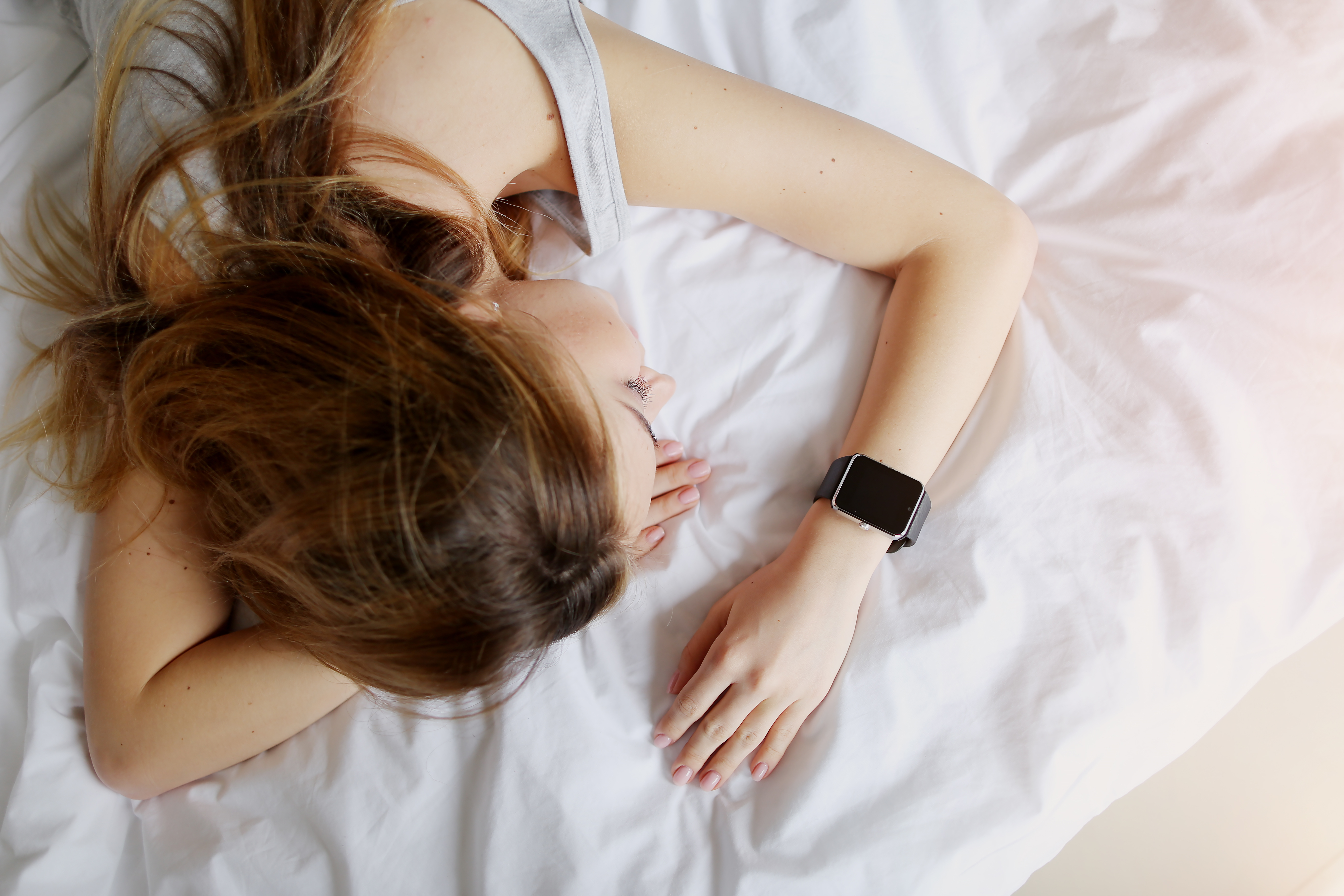In the age of smart devices and apps, several new lifestyle habits have become ingrained into our everyday lives. One of those habits is self-quantification, or self-tracking, of daily activities. As a newer feature on most smart wristbands and watches, how much sleep you are getting at night is now being added to the list of metrics you can track. Wearing these to sleep can automatically track how long and how well you slept the night before with the notion that it will help you get on a better routine.
However, recent studies show that trying to regulate your sleep in this manner could be more harmful than good and actually cause sleep anxiety.
Orthosomnia
While tracking your sleep can pose some benefits, like being able to analyze your sleep patterns over the course of a week or a month, many are becoming obsessive which is causing a negative side-effect. In a study published in the Journal of Clinical Sleep Medicine, “the correlation between sleep tracker data and daytime fatigue may become a perfectionist quest for the ideal sleep.” The researchers who conducted the study have termed this condition “Orthosomnia,” meaning “perfect sleep.” This is used to describe people who are becoming obsessive over improving their sleep data.
In the first case of the study, the subject, dubbed Mr. R, was gifted a sleep tracker by his significant other to improve his poor sleeping habits, which was causing irritability and slow cognitive ability. Based on the data gathered by the tracker, Mr. R realized he and his girlfriend fought less when he achieved a full eight hours of sleep. In the study, he states that every night he felt the pressure to ensure his tracker would display eight hours the next morning, causing self-induced anxiety.
Losing Sleep Over Tracking Sleep
In the research done by the aforementioned study, 10% of adults in the U.S. use a wearable fitness or sleep tracking device on a regular basis. When Anna Sterling, a writer for the Huffington Post, saw that her new Fitbit displayed her amount of sleep at five hours and four minutes, she was determined to increase that number. “It was like a game, and I wanted to beat my score each night,” Sterling writes in her article recounting her experience.
According to Dr. Raj Dasgupta, a doctor at the University of Southern California who specializes in pulmonary and sleep, people with anxiety or Type-A personalities may panic over their low sleep score and get more anxiety towards sleep.
A major issue with tracking devices is that unless they automatically start tracking when you fall asleep, you must click start when you are ready for bed. This puts pressure on the user to fall asleep as soon as the device starts recording, causing more stress and restless sleep.
How to Improve Sleep the Right Way
When more than a third of adults in the US are not getting enough sleep, it is not surprising that many are trying to find ways to improve their sleeping habits. While tracking devices are useful for activities you can control, like exercising or calorie intake, sleep is not as simple. Unfortunately, you can’t will yourself to fall asleep. So how do you fix it?
The National Sleep Foundation suggests exercising, a comfortable bed and relaxing bedtime routine just to name a few. If you continue to struggle with falling asleep and believe you may have a disorder, seek out a sleep professional.


